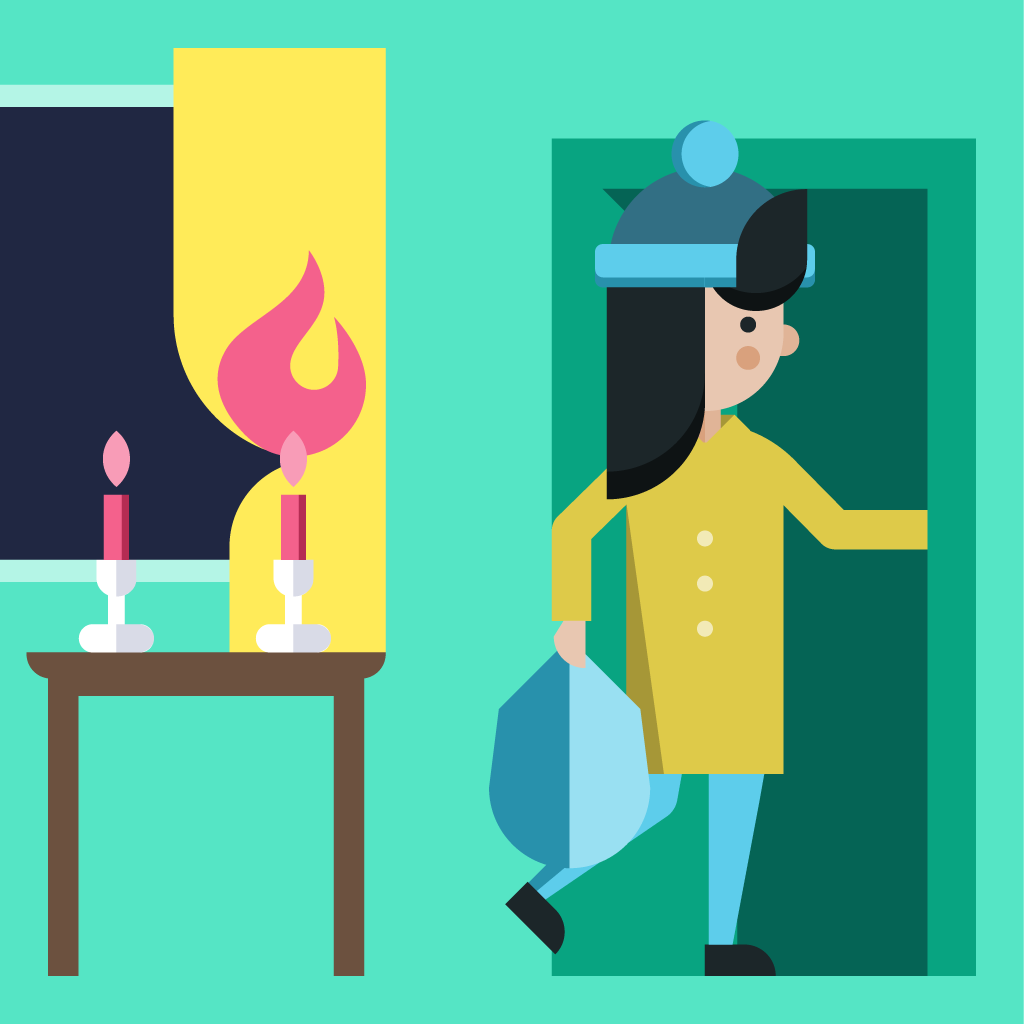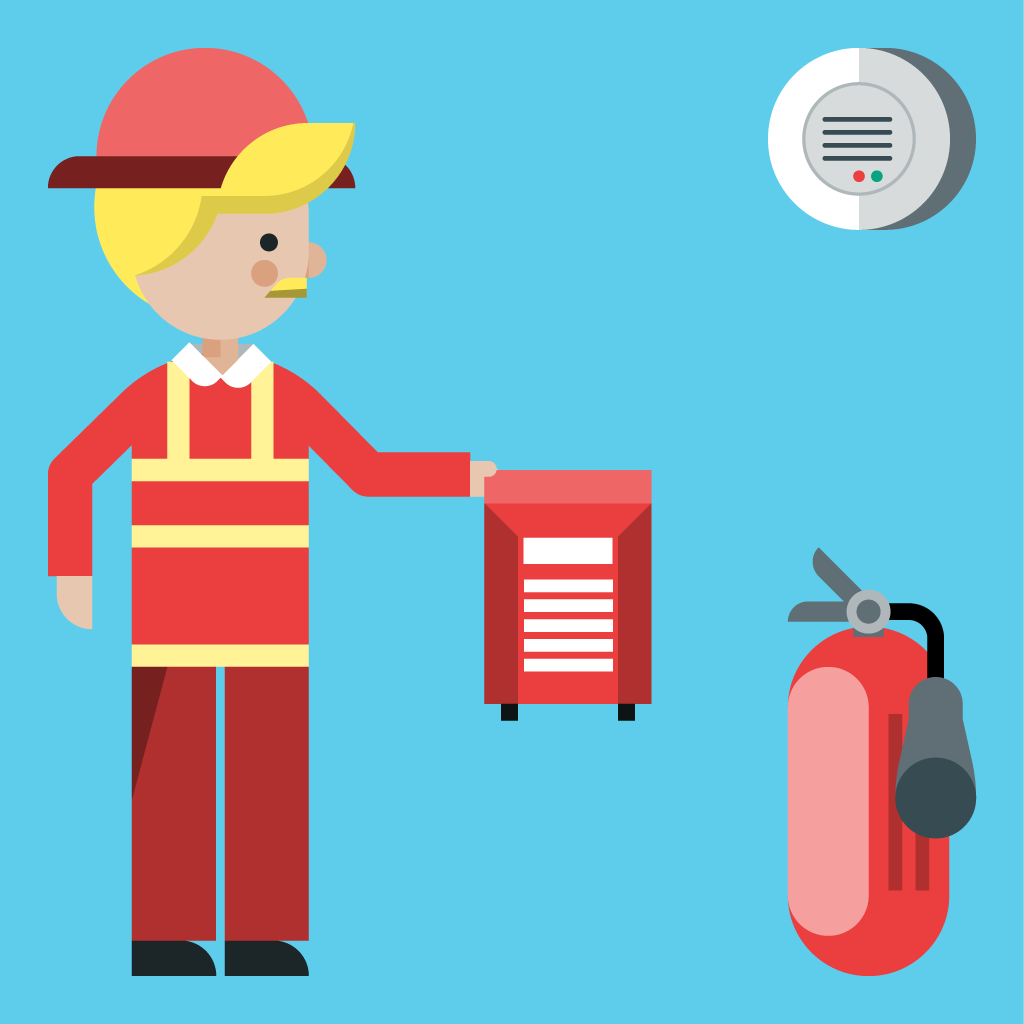Is your home fire-safe?
Avoid, prepare, and insure – this is how you make your home fire-safe.


Avoid fires
A large portion of fires could have been prevented. Small changes in your daily routines can make your home significantly safer from fire. The risk of fire decreases substantially when you keep these tips in mind.
Stay alert while cooking
- The greatest fire safety risk is cooking without supervision. Cooking under the influence of alcohol or other substances also poses an unnecessary risk.
- Keep the kitchen clean. Do not store anything flammable near the stove – a malfunction could heat the stove and ignite nearby items.
Electrical fires are common
- Even a functional and undamaged electrical device can catch fire if not used or maintained properly. Familiarize yourself with the user manual and regularly vacuum away dust layers that block ventilation openings.
- Inspect electrical devices before turning them on. A broken device or cord can cause an electric shock or ignite a fire.
- Be especially cautious if you order electrical devices from abroad or buy them second-hand. The CE mark used in EU countries indicates that the device meets EU safety standards.
- Washing machines can cause both fires and water damage while you’re away. Stay at home when using a dishwasher or washing machine.
Charge smartly
- Do not leave your phone or other battery-powered devices charging unattended or overnight. If the battery starts to heat up, swell, or make unusual noises, you need to be able to react quickly. Battery fires can cause significant damage rapidly and are difficult to extinguish.
- A car heating pole is not suitable for charging an electric car – it is not designed to handle the load, creating a fire hazard.
- Also, remember to unplug the cord from the car heating pole when it’s not in use. A cord left hanging from the pole poses a risk of electric shock.
No unattended candles
- Always keep an eye on open flames. Do not leave candles burning, even for a moment, if you leave the room.
Be prepared
Despite the best precautions, emergencies can still happen. In such situations, it is crucial to detect the danger and act quickly, as your ability to escape may depend on just a few minutes.
A functional smoke alarm is essential
- Smoke alarms save lives. It detects smoke, which can fill your home in just a few minutes – often before you notice it yourself. It is essential to have a functioning smoke alarm in your home.
- Regularly test your smoke alarm to ensure it works. Press the test button at least once a month to be confident that the alarm will alert you when needed.
- Read more about fire alarms in Hoas properties.
Fire extinguishing equipment
- In the event of a fire, it is crucial to have fire extinguishing equipment within reach. Examples of easily stored home equipment include fire blankets or liquid fire extinguishers.
- Not all fires can be extinguished with water, and attempting to extinguish a fire using the wrong method can create a dangerous situation. For instance, grease or electrical fires should never be extinguished with water. A grease fire should be smothered, and an extinguisher or blanket should be used for an electrical fire.
Is your escape route clear?
- In an emergency, your ability to escape may depend on just a few minutes. Keep the path from your home to the outside clear of shoes, bags, and other items that tend to accumulate in the entryway.
- Familiarize yourself with the evacuation plan so that in an emergency, you can head in the right direction and act in a way that also aids rescuers. You can find the evacuation plan for your building in MyHoas.
Home insurance
Home insurance doesn’t directly improve fire safety, but it’s an essential part of being prepared. If an accident occurs, home insurance helps you recover. For instance, in a fire, you could lose all your belongings. Home insurance protects your financial situation when the worst happens.
Remember, home insurance also safeguards your property from mishaps caused by your neighbors. A fire might start in your neighbor’s apartment, but your own home and belongings could still be destroyed.
If you live in a Hoas property, home insurance is mandatory if you have your own washing machine or dishwasher in your apartment. However, we recommend home insurance to all tenants.